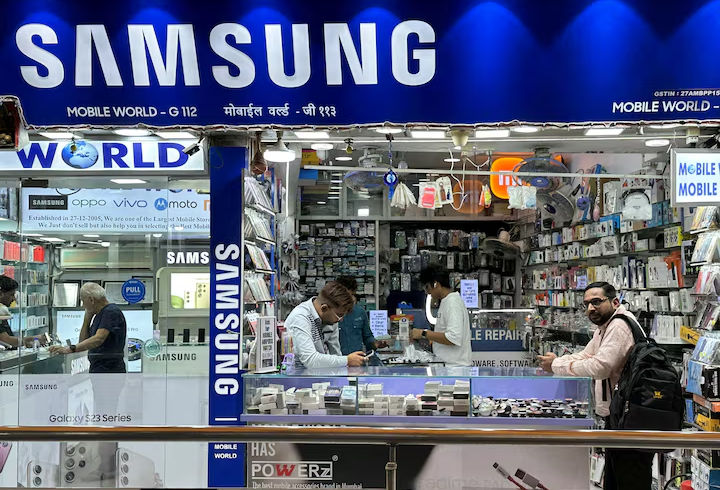Samsung Electronics is fighting back against a hefty $520 million tax demand from Indian authorities over claims it misclassified telecom equipment imports. In a bold defense, the South Korean tech giant argues that it followed a business model previously adopted by India’s own telecom giant, Reliance Jio — without facing penalties at the time.
According to a 281-page filing submitted to the Customs Excise and Service Tax Appellate Tribunal in Mumbai, Samsung contends that Indian authorities were fully aware of the classification practices being used, yet never raised concerns until recently. The tax case centers on Samsung’s import of a crucial telecom component called “Remote Radio Head” — a device that plays a vital role in 4G mobile towers by managing radio frequencies.
From 2018 to 2021, Samsung sold this equipment to Reliance Jio, which is controlled by billionaire Mukesh Ambani. The Indian government claims Samsung evaded tariffs ranging from 10% to 20% by misclassifying these imports, allegedly defrauding the national treasury in the process.
However, Samsung insists it had no intention to deceive and highlights that Reliance had imported the same equipment in a similar fashion from 2014 to 2017 — without paying tariffs. In fact, the filing reveals that Reliance was warned by tax authorities about the practice back in 2017. Yet, according to Samsung, this warning was never shared with them.
“The classification adopted by Samsung was not only known but tolerated by authorities for years,” the filing states. “Reliance Jio officials did not inform Samsung of the earlier tax warning, and no questions were raised by the tax department at the time.”
Samsung claims the January tax order was rushed and that it wasn’t given a fair opportunity to present its case. The company also disputes the severity of the accusations, calling the investigation’s tone unnecessarily harsh. Officials had described Samsung’s actions as unethical and driven by profit motives at the expense of public funds.

To make matters more serious, Indian authorities have also fined seven Samsung employees a total of $81 million, raising the total demand to $601 million — more than half of Samsung’s net profit of $955 million in India last year.
Samsung is not alone in this tax struggle. Volkswagen recently filed a legal challenge against a $1.4 billion tax notice from the Indian government over similar misclassification issues. These back-to-back cases raise questions about India’s tax enforcement strategy and how it impacts foreign investment.
For now, Samsung hopes the tribunal will recognize the broader context of its case and reverse the demand. Whether India will reconsider or tighten its regulatory grip further remains to be seen.



